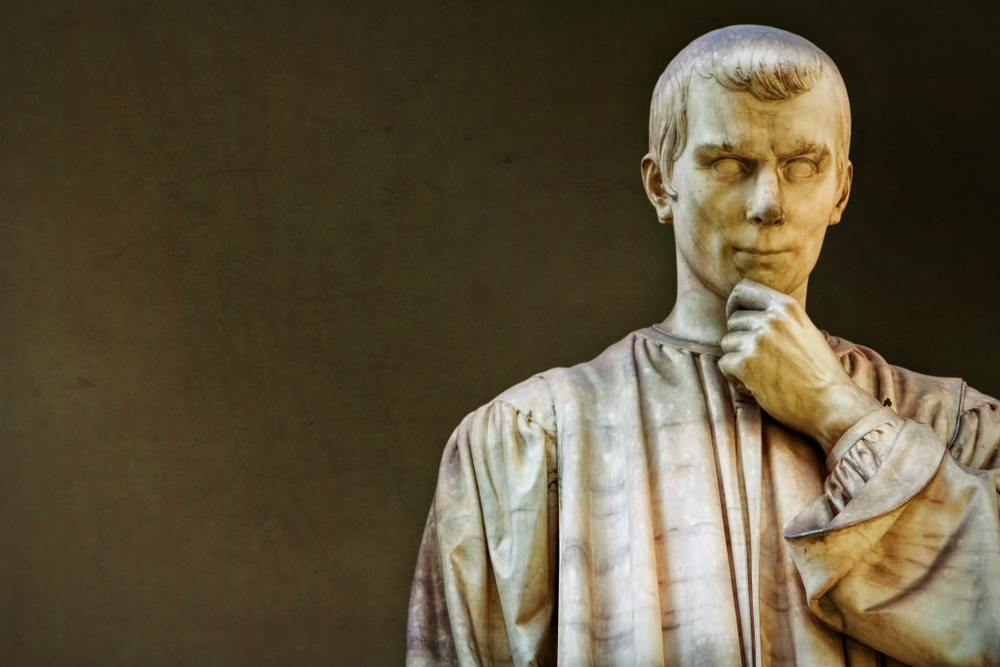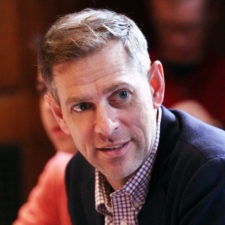Harvey Mansfield recently retired from his position at Harvard University after a long and storied career. He’s almost an institution himself, well-known for hard grading, demanding teaching, a book on manliness long after such things were permissible, and superb translations of Tocqueville and Machiavelli. His retirement, in part, contributes to the attention given his newest book, Machiavelli’s Effectual Truth: Creating the Modern World, although the book is worth careful study in its own right.
Mansfield’s prestige as an interpreter of Machiavelli is well-deserved. Here he complements an earlier work of his, Machiavelli’s Virtue (1996), taking up two themes around which the parts of the book are organized: effectual truth and Machiavelli’s influence after his death. The topics are intrinsically related, suggests Mansfield, for since Machiavelli is concerned with the actual results of an action, its effectual truth as opposed to the intended or imagined outcome the agent had in mind, it is of great concern to Machiavelli that his account isn’t merely theorized but is received, embraced, and “executed” by successors capable of extending the project beyond him. In other words, as Mansfield writes, the problem of effectual truth applies to Machiavelli himself: “What is the effectual truth of the teacher of effectual truth?” It matters little what Machiavelli intends, but it matters entirely what he is able to bring about. Machiavelli must ask if he is able to create modernity beyond theory, if able to make his successors—we moderns—view the world as “complete in itself, confined to what can be seen, heard, tasted, smelled …, not requiring any supra-world.”
As a reader might expect, the influence of Leo Strauss is evident in Mansfield’s interpretation. Since the philosopher challenges the gods and mores of the city, the philosopher must conceal his true aims through the art of writing. Machiavelli, thus, does not provide demonstrations with transparent evidence and argument open for review and repetition. Things are not necessarily “above board” with him, and he conceals his claims in “nuance, subtlety, or irony.” One must learn to read Machiavelli as he must be read, taking his artifice and subversion into account, which heightens the problem of succession since he must write with enough artifice to conceal his purpose while giving “a start to his enterprise” that must be developed by others who understand and embrace it.
As the subtitle indicates, Mansfield explores the possibility that Machiavelli does not simply contribute to the modern world but is the creator of it, “uno solo,” the single voice, the prince or founder of the project. If we take modernity to mean a commitment to “realism” in science, philosophy, and politics, then we must take Machiavelli’s claims seriously, for realism, properly understood, entails effectual truth (verità effectuale), which Machiavelli invents. In the moral life, the intention of an action is often thought essential to define the object of the action. If I choose x for the sake of y, my action is defined by x and y, whatever result happens or does not happen. I might be morally responsible for outcomes beyond my choice, but, still, I am not directly responsible for them since I did not choose them. Machiavelli discounts all of this as “imaginative truth.” The truth that matters, rather, is the truth that results, including how the action is perceived and received by others.
Consider generosity, an example Mansfield discusses several times. A generous person eventually is deemed stingy, since their gift quickly becomes assumed or taken for granted, and when they decide to end the gift, perhaps for good reasons, they are judged stingy, even more stingy than others since it is surprising and against the nature of things for them to withhold. The more generous a person is, the more they will be judged to be tight-fisted, while the tight-fisted person can act so as to be perceived as generous. The truth of the judgment is effectual truth, the “facts” as they are interpreted and received. It is the effect of the action that constitutes truth, not the intention or imagined action.
The turn to “facts,” although not a term Machiavelli uses, explains Machiavelli’s interest in the problem of necessity. Since the truth of an act is how the act is “held” or received, action operates within conditions of necessity. That is, value is drawn from facts as they are rather than separating fact from value, let alone placing value in the supra-sensible world of Plato’s Good or Christianity’s heaven. The way the world is—fact—constitutes what ought to be done, what is necessary to do to bring about the desired outcome. The question is not what should be done in keeping with an abstract morality but what must be done to effect our aims, and what must be done is what ought be done. This is more than simple pragmatism, however, since the prince is acting in order to be perceived in a certain way. If the people believe in morality, as they in fact do, the prince cannot appear to act immorally. Necessity involves the political and social fact of moral belief, including the fact of Christianity’s power in Machiavelli’s time. Most people, including most Christians, do not accept that necessity equals morality, so a prince cannot plainly and honestly proclaim allegiance to necessity, in part because it would seem immoral but also because he would appear to lack freedom, to be constrained, to have his hand forced by facts. The prince must appear moral and free all while acting out of sheer necessity.
Machiavelli’s articulation of this makes him, Mansfield suggests, the founder of modernity, the single voice who brings it about. We are comfortable with the idea that history and society come about through abstract forces, “the very contrary of rational control,” but Machiavelli has effected his own control and influence. He does this explicitly counter to Christianity and its concern for the world beyond, which diminishes this world to secondary status at best. At the same time, Machiavelli operates through the same means as the Church—that is, the art of war that does not use arms but rather the “concealed arms” of fraud and propaganda. Christianity developed through conversion; the revolution against it also requires conversion, and the Church’s claims will be surmounted through the very methods through which the Church succeeded.
The Church must be overcome simply because of its concern for heaven. The pagans knew the value of this world and the truth of this world, and only this world. What Machiavelli describes as “our religion”—Catholic Christianity—posits two worlds and directs our attention away from this world and to the next, contra mundum. For realism to succeed, for modernity to come to life, theology must be overcome, but it cannot be overcome in open battle. Arms are concealed, propaganda utilized, as it’s necessary to do so.
For effectual truth to succeed, “captains” must take up the cause, with Francis Bacon perhaps the most influential of these. Machiavelli “has made a fundamental change in the relation of philosophy to politics,” but he “knows he cannot convince the common people” of his claims. Yet, who would doubt that Bacon’s revolution in science, a revolution against Aristotle and the scholastics, a revolution against teleology, theology, and purpose, driven by the necessity to better humanity’s lot, has become the dominant model of the West. Bacon brings Machiavelli to the masses, and the people are delighted with its truth. Machiavelli has taken fortuna into his own hands through the work of others, especially Bacon, but also Marx, Descartes, Hobbes, Locke, Jean Bodin, and others, an “army” of “princes and peoples.” Mansfield is especially interested in, and devotes chapters to, the reception and use of Machiavelli by Leo Strauss, Leonardo Bruni, Montesquieu, and Tocqueville, finding that even those thinkers most overtly opposed to Machiavelli have, of necessity, been subsumed by him. Modernity is upon us, and the single architect, Machiavelli, has effected his version of effectual truth supremely well.
Much of Machiavelli’s Effectual Truth appeared previously in various scholarly venues. As such, the repetitions and awkward transitions usual in such books are inevitable, and they occur here. Arguments are repeated, sometimes often, and some chapters read as squeezed or forced into the outline of the book, particularly the fourth chapter, a discussion of Machiavelli’s Mandragola. Still, Mansfield is a master of his craft and reveals the genius of Machiavelli in this compelling and captivating book. The fruits of decades of labor are on clear display, and all wishing to understand Machiavelli would be well-advised to start here.

